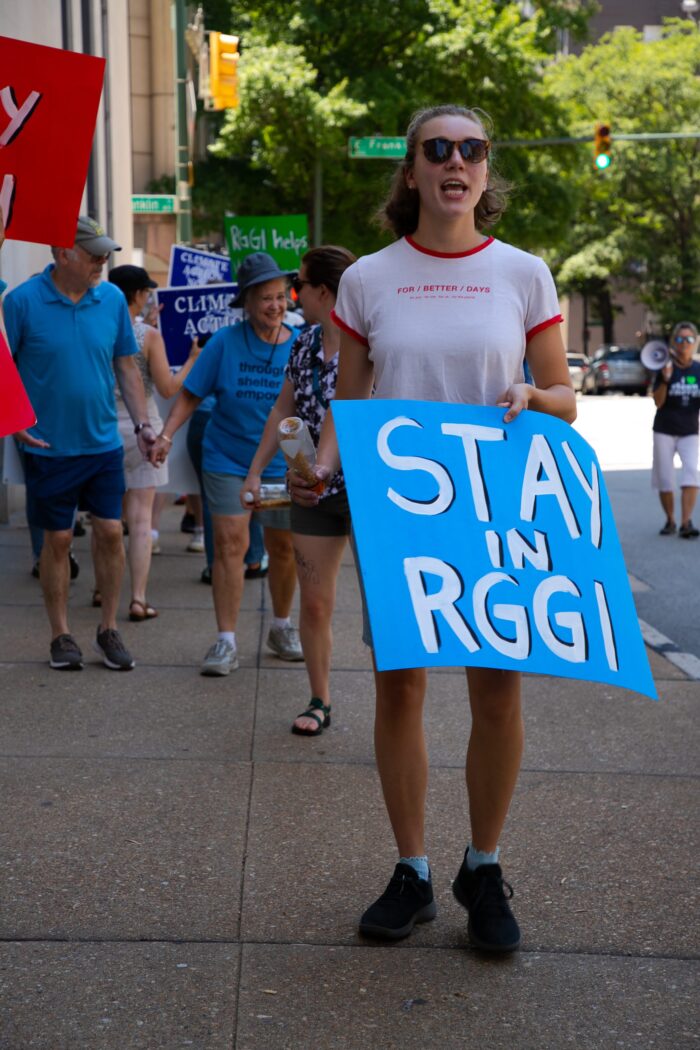We’re ready to go to court to hold the line on Virginia’s climate progress
Two months ago, Virginia’s Air Pollution Control Board controversially voted to remove the state from the Regional Greenhouse Gas Initiative, a program successful at tackling climate change by reducing carbon emissions from the energy sector.
The final regulatory action was published in the Virginia Register today, and will remove Virginia from RGGI at the end of 2023.
RGGI helps us leave a better world to our children and grandchildren, and we will continue to vigorously defend Virginia’s participation in this successful, bipartisan program.
Andrea McGimsey, Faith Alliance for Climate Solutions
We served the Department of Environmental Quality a notice of appeal, challenging Virginia’s removal from RGGI on behalf of Appalachian Voices, the Association of Energy Conservation Professionals, Faith Alliance for Climate Solutions, and Virginia Interfaith Power and Light.
“There are still serious questions as to whether the Air Board actually has the authority to pull the state out of RGGI,” SELC Senior Attorney Nate Benforado said. “Throughout this process, the administration has ignored the thousands of Virginians who have steadfastly opposed this misguided process. While it is sad to see it come to this, Virginians deserve to see a fair process decide whether their communities continue to benefit from participation in RGGI.”
In the notice, the groups informed the Air Pollution Control Board, and DEQ, and its director, that they will challenge this action in Fairfax Circuit Court.

RGGI gets at the root cause of climate change, heat-trapping pollution. When a state joins the regional effort and a power plant emits carbon dioxide, the plant’s owner has to pay for each ton of carbon dioxide pollution it produces. Allowances can be bought and sold in a regional auction, which helps to keep costs down. The number of available allowances is reduced over time to reduce pollution.
“RGGI is an effective method for reducing emissions,” SELC Senior Attorney Grayson Holmes said. “Participating states have seen power plant emissions plummet in comparison to non-participants. The same is true in Virginia, where emissions from power plants declined nearly 17% in the two years since Virginia joined. RGGI is clearly working. I truly don’t understand why the administration would want us to leave—especially now, when the weather is showing us just how harmful carbon emissions can be.”
Everything you need to know about RGGI can be found here.
Virginia joined RGGI in 2021 after the General Assembly passed a 2020 law requiring Virginia’s participation in the successful regional program. Other states in the program are Connecticut, Delaware, Maine, Maryland, Massachusetts, New Hampshire, New Jersey, New York, Rhode Island, and Vermont.
Since becoming the first Southern state to participate in RGGI, Virginia has already made substantial gains in reducing and controlling air pollution from power plants, while bringing in hundreds of millions of dollars from RGGI auctions to help low-income households save on energy bills and support localities planning for and protecting against recurrent flooding.
Get the facts about RGGI.
Andrea McGimsey, Executive Director of Faith Alliance for Climate Solutions, reiterates the benefits of the program.
“As people of faith, we are committed to being responsible stewards of the Earth,” she says. “RGGI helps us leave a better world to our children and grandchildren, and we will continue to vigorously defend Virginia’s participation in this successful, bipartisan program.”
Now that the notice of appeal has been served, the groups have 30 days to file a petition of appeal with the Fairfax Circuit Court, detailing the specific claims.
